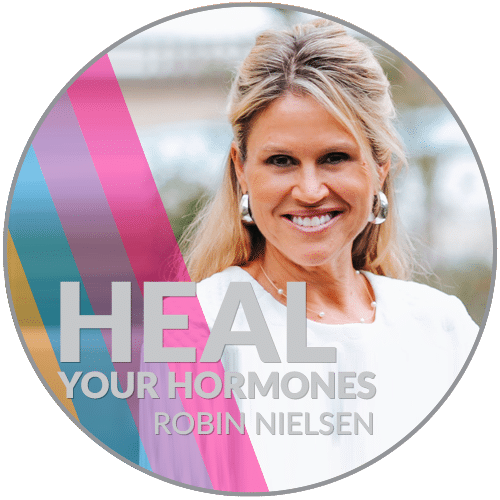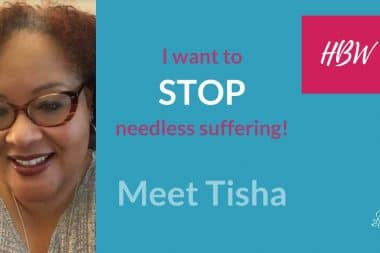We understand that not being able to conceive a child can be absolutely devastating to a couple. There is nothing like holding your own baby in your arms, and that’s why so many women like us want to conceive.
What is Infertility?
A common characteristic of PCOS, infertility is a disease of the reproductive system. It’s defined as the inability to conceive or carry a child to term after 12 months of trying to conceive. Interestingly enough, if you are over the age of 35, you have a six-month window. It’s definitely time to see a specialist. This could be your OB/GYN, urologist or reproductive endocrinologist for a total work-up and correct diagnosis.
With PCOS, the endless nights of tears, the constant feelings of inadequacy, can place you into a state of despair. When a friend of yours announces her pregnancy, it can trigger different emotions. You may find it impossible to be happy for your friend, and even become a bit resentful.
Susan, 55, has been battling PCOS and infertility for 10 years. “The hardest part for me having PCOS is not being able to have a baby,” says Susan. “I was envious of my friends that had children. And when I did finally get pregnant I lost my baby to a miscarriage.
Depression/Anxiety
Anxiety and stress levels among PCOS women and their partners can soar. PCOS is being increasingly seen as a cause of depression, anxiety and stress in many of us who suffer from this insidious disorder. Numerous women suffer from depression and mood swings as a result of multiple symptoms of PCOS. These symptoms include insulin resistance, which can cause hormone imbalance, such as elevated levels of testosterone — the male hormone. By upsetting this tender balance of female hormones, PCOS can be instrumental in the onset of depression. Anxiety and depression are common in women with PCOS, but are often overlooked and left untreated.
Charlotte, 60, shares, “I suffered from depression, anxiety and panic attacks. I was very emotional and felt like I wanted to jump out of my skin. I always wondered what was wrong with me. It seemed like the more I complained, the more doctors would throw pills at me. I was on anti-depressants for years.”
In addition, the imbalance of hormones also creates visible symptoms of PCOS like acne and excess hair growth on the face and body. These outward manifestations often lead, in turn, to feelings of poor self-esteem.
The emotional ups and downs are some of the most challenging aspects of the infertility experience. This relates to medical treatment, the challenges of having to make important decisions such as when “enough is enough,” and the uncertainty about outcomes. You must know how to best take good care of yourself and make sure you get all the support you need during this difficult time. Moreover, you need to manage your emotions so your self-esteem stays positive.
Loss
Infertility also conjures up a sense of loss and disappointment, and the feeling of emotions and events being out of control.
Six Symptoms of Grief
Even when your mind isn’t consciously thinking about your loss, your unconscious mind and your body may be responding to feelings of grief. Such symptoms of grief include:
- Lack of energy
- Headaches
- Irritability
- Insomnia
- Extreme sadness
- Inability to concentrate
The best way to deal with this is to take good care of your emotions. Paying attention to grief ends its power over you, and you can find the energy and concentration to get on with your life.
Anger
Anger usually results from feeling vulnerable and helpless. These feelings result from the lack of control that you may feel over your life, your body and your future. You may feel vulnerable or that life isn’t fair. Anger can consume you and affect your everyday thoughts and experiences. You may feel emotionally guarded, torn between tears and sadness or anger and rage. Remember that anger is a normal response to PCOS-related infertility.
Guilt and Shame
Shame is a painful feeling that goes along with low self-esteem and a sense of inadequacy, defectiveness and helplessness. Anguish and self-doubt and chronic sadness converge as couples think of themselves as failing. Shame is often hidden and disguised because shame contains the painful sense of not being quite good enough and you may feel something is terribly wrong with you.
Hope
The process of coming to terms with PCOS with its fertility challenges and all it involves is long, difficult and gradual. However, it is possible to transform this sense of failure into an empathy with yourself, an acceptance of your limits and affirming your strength. Don’t give up. We are in your corner. In time, the darkness that envelops your life can fade, and yes, the light of hope can shine brightly.
10 Tips: How to be Emotionally Supportive of Couples With PCOS Infertility
- Let them know you care.
- Do your research. Read about infertility so you are informed when your friend needs to talk.
- Act interested.
- Ask them what they need.
- Provide extra outreach to your male friends.
- When appropriate, encourage therapy.
- Support their decision to stop treatment.
- Attend difficult appointments with them.
- Watch their older kids. Attending doctor appointments may be hard if they have older kids at home.
- Offer to be an exercise buddy. Sometimes losing weight is necessary to make treatments more effective.
National Infertility Awareness Week
In celebration of National Infertility Awareness Week ® (NIAW) April 24th – 30th, 2016, we created a series of video interviews from women who have suffered through the challenges of infertility due to symptoms of PCOS. To learn more or hear their compelling stories, please visit our Infertility Week Video Series.
https://www.huffingtonpost.com/barbara-collura/25-things-to-say-and-not-_b_5197697.html
https://jeanhailes.org.au/health-a-z/pcos/emotions
https://www.resolve.org/support/Managing-Infertility-Stress/emotional-aspects.htmlouples
https://www.pcos.com/blog/1528/how-pcos-can-affect-your-emotions/
https://jeanhailes.org.au/health-a-z/pcos/emotions
Next Steps
Becoming victorious over the symptoms of Polycystic Ovary Syndrome is not an easy task, but you can overcome your symptoms to live the life you deserve.
It takes strength, courage, and perseverance. It can be challenging and that’s why Insulite Health created the PCOS 5-Element System. It’s a step-by-step process that will help you balance your hormones and reverse PCOS symptoms using our proprietary 5% Solution.
So take the next steps now! Use the links below to learn how to make the changes that will transform your health and your life forever.
- Read more about PCOS
- Take the PCOS Test and assess your risk!
- Learn more about the Insulite 5-Element PCOS Solution
About Insulite Health PCOS.com
Insulite Health, is committed to helping women reverse their symptoms of hormone imbalance. Scientific research has revealed that this imbalance can be a primary cause of many devastating health symptoms. Hormone Imbalance can also underlie the increased risk factors for PCOS (Polycystic Ovarian Syndrome) – a major source of serious diseases as well as cause of excess weight gain, adult acne, unwanted facial hair, depression, anxiety, and heartbreaking female infertility.
©Insulite Health, Inc., pcos.com empowers women with PCOS to transform their lives through a process of healing with the 5-Element PCOS System — the world’s only complete solution for helping women heal from the symptoms of PCOS and hormone imbalance.










Reply